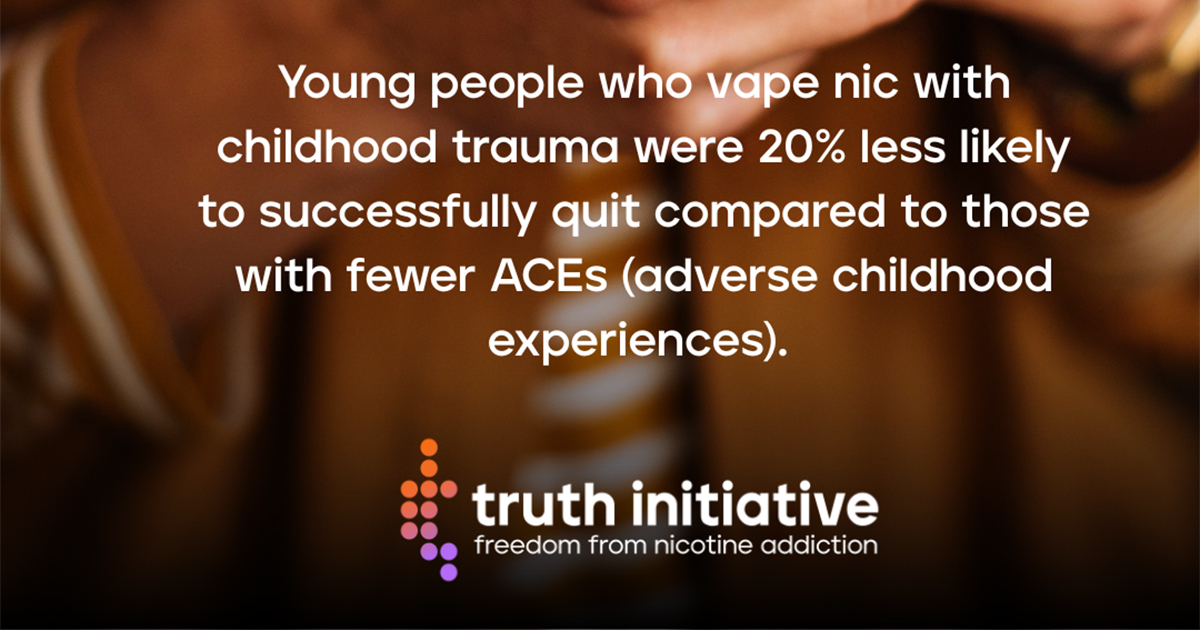Adverse Childhood Experiences Impact Teens’ Ability to Quit Vaping
New study finds teens who experienced traumatic events during childhood need more support to quit e-cigarettes
A new study published in the Journal of Adolescent Health reveals a critical link between adverse childhood experiences (ACEs) and a teen’s ability to successfully quit e-cigarettes. Research led by Dr. Amanda Graham, Chief Health Officer at Truth Initiative — the nation’s largest public health nonprofit dedicated to preventing youth and young adult nicotine addiction and empowering quitting for all — is the first of its kind to examine the impact of ACEs on e-cigarette cessation outcomes among adolescents. The findings show that teens with a history of trauma face significantly greater challenges when trying to quit vaping nicotine.

The study analyzed data from a randomized clinical vaping cessation trial conducted among adolescent e-cigarette users aged 13 to 17 who were interested in quitting vaping. Among the 1,248 adolescents in the study, over 90% reported at least one ACE and 56% were classified as "High Risk" (4+ ACEs). High risk adolescents were 20% less likely to successfully quit vaping compared to those with fewer ACEs. Each additional experience of abuse was associated with a 7% decrease in abstinence rates.
“We’ve known for decades that there is a strong link between childhood trauma and difficulty quitting smoking. This research extends that knowledge to teen vaping and shines a light on just how common the problem is,” said Graham. “Bringing proven trauma-informed treatment approaches into vaping cessation programs for young people could significantly improve quit rates by addressing both nicotine addiction and underlying trauma.”
High risk adolescents were more likely to identify as female or LGBQ (lesbian, gay, bisexual, or queer - transgender status was not recorded), report higher levels of nicotine dependence, psychological distress, and loneliness, and lower motivation and confidence to quit.
The most commonly reported traumas included emotional neglect (68.1%), emotional abuse (63.1%), and having a parent or caregiver with mental health issues (60.0%). Neglect and household dysfunction were not significantly associated with cessation outcomes.
The latest news from Truth Initiative
Visit press centerWant support quitting? Join EX Program
By clicking JOIN, you agree to the Terms, Text Message Terms and Privacy Policy.
Msg&Data rates may apply; msgs are automated.